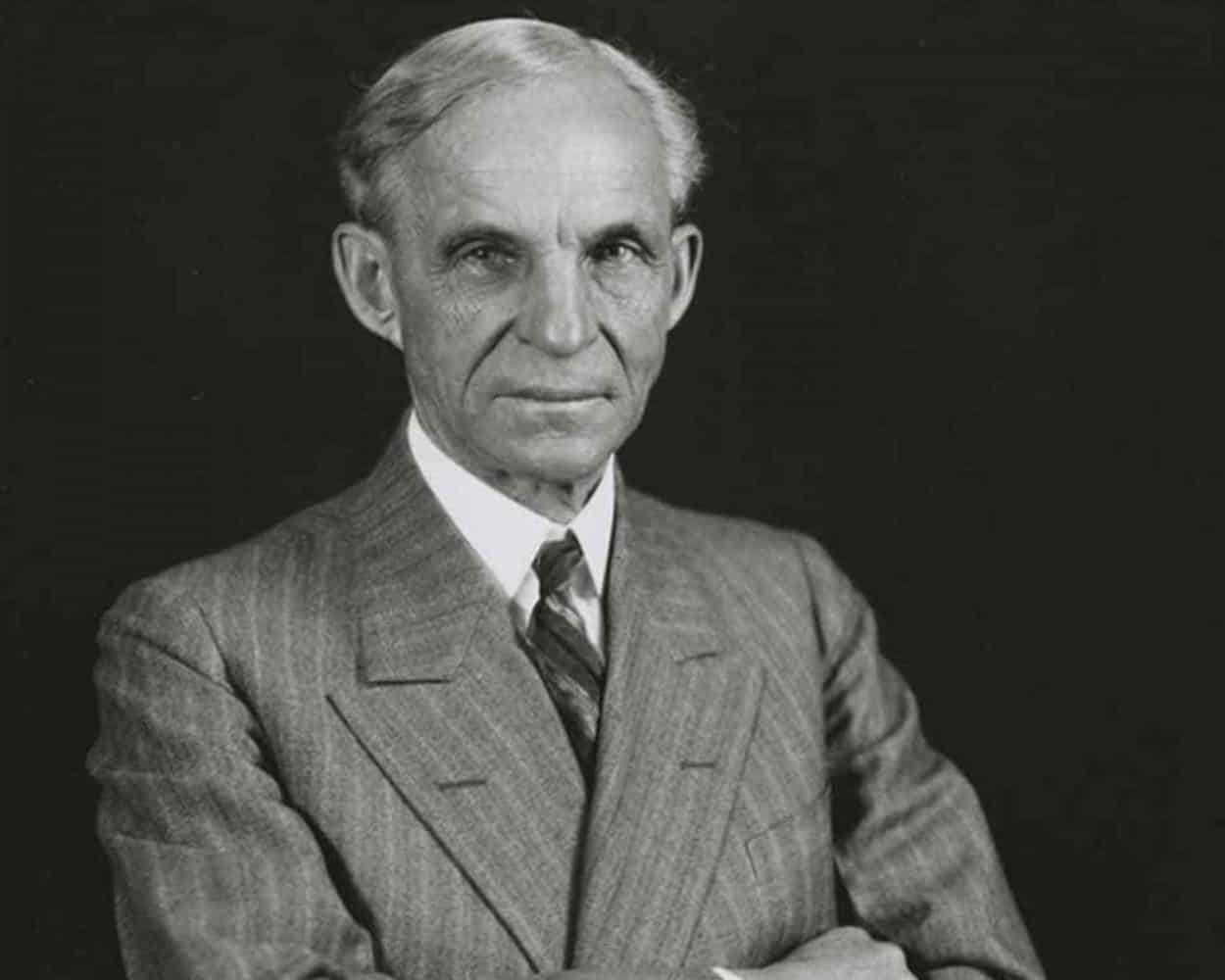Accelerate Your Business Growth with These 8 Tips from Hoffman, Thiel, and More
In the business world, there’s no time to waste. Discover billionaires’ best tips for growing your business more quickly.
How’s your business going? If you’re like the majority of entrepreneurs, you know that it can always be better. We’ve never had as many opportunities for growing a successful business as we do today.
But, are you taking full advantage of those opportunities? The truth is that most business owners aren’t. With so many things to juggle on a daily basis, it’s all too easy to lose focus on long-term growth.
If you’re looking for some clarity as to what it takes to grow more quickly, you’re in for a treat. Here you’ll see what some of the world’s biggest business leaders do to generate billions of dollars.
Without further ado, let’s dive into some of the best tips for growing your business.
Reid Hoffman – Don’t Be Product-Centric
Thriving in the market is largely about what you have to offer. Your offering needs to provide more value than the competition’s. But this is only one part of the equation.
Just ask Reid Hoffman, co-founder of LinkedIn. He believes that it takes much more than a good product to grow a business:
‘If others are much more successful at distribution and they have much better viral spread, they have better index and SEO…it doesn’t matter if your product is 10x better, the folks don’t encounter it.’
Opportunities for growth are everywhere. There are ample aspects outside of your product that you need to take a close look at. And you can’t do this if you’re focusing too hard on building a perfect product.
You’ll want to zoom out and take a look at your business as a whole. See what could use some tweaking and shift your focus towards it until you notice better results.
Peter Thiel – Focus on Your Unique Secrets
The fact that you’re making it in the market means that you’re doing something right. It means that you can offer something that others can’t. Or you’re doing it better than them.
But you want to do much more than just survive. How? By doubling down on your biggest competitive advantage.
Peter Thiel, one of the most well-known venture capitalists and entrepreneurs in the world, talks a lot about this. He even wrote about it in his book that ended up as a #1 NY Times bestseller.
Thiel believes that every business has its own set of secrets. Things that are at the core of any given business’ success and that nobody else can replicate. And in a world where the competition is fiercer than ever, this is vital to success.
So, what’s your secret? Is your technology better than others’? Or maybe you have a unique funnel that draws people in before they get a chance to look at the competitors.
Whatever it may be, you need to focus on that and play to your biggest strengths.
But that’s not all. Thiel also advises that you go after other secrets beyond the ones that you already have. This is the basis of innovation and your way of telling the market that you’re there to stay. By getting your hands on new unique processes and knowledge, your chances of success will skyrocket. You’ll keep finding new areas of growth and rising above the competition.
 Bill Gates – Don’t Obsess Over Failures
Bill Gates – Don’t Obsess Over Failures
This is a major issue that many entrepreneurs still face. Any successful person would tell you that failure is necessary, but it never feels good. That’s until you change your mindset.
Think about it. What can you do after having failed at something? Until someone invents a time machine, the answer is absolutely nothing. It’s a part of the past and should stay that way. Obsessing over a failure takes up your time and energy.
In the words of Bill Gates:
‘It’s fine to celebrate success, but it is more important to heed the lessons of failure.’
And this is exactly what failure is – a lesson that you learn and move on from it. The only thing that you can do to fix a mistake that happened in the past is making sure that it doesn’t happen in the future.
You’ll fail many times. It’s just how things work. But if you learn something from every mistake, you’ll open up opportunities for growing your business.
Mark Zuckerberg – Take Risks
If your business has plateaued, chances are you’re playing it too safe. You might get stuck in the same repetitive patterns that hold you back.
Like many successful people, Mark Zuckerberg believes that this can be one of the biggest business killers.
‘The biggest risk is not taking any risk … In a world that’s changing really quickly, the only strategy that is guaranteed to fail is not taking risks,’ he explains.
Let’s face it. It can be scary to take risks with your business. You break your back to make it work and the last thing that you need is making unnecessary gambles. But you have to understand the difference between gambling and risk-taking.
Taking calculated risks can protect you against losing too much. On the other hand, they can be a turning point for your business if everything goes well. And you can make this happen by assessing every move that you make and predicting the future as closely as possible.
If you’re smart about it, there’s no reason to be afraid of taking risks. Overcoming this fear is essential for growth, so make sure that you do something about it.
Steve Jobs – Be Proactive
How do you figure out what your customers want? In most cases, the answer is simple – just ask them. This will show you exactly what you need to do to make them happy.
Or is it?
Steve Jobs, one of the most innovative minds the planet has ever produced, didn’t seem to think so. In his opinion:
‘You can’t just ask customers what they want and then give it to them. By the time you build it, they’ll want something new.’
Do you see the problem with reacting to customer needs? With more options in front of them than ever before, most of them don’t even know what they want. If you take your time figuring out what most of them want, someone else will have already predicted it and given it to them.
Your goal is to be that person. Someone who anticipates needs instead of wasting time asking around. This is the true way to innovate and create something that people may not even know they need but which they will end up loving.
Richard Branson – Don’t Do It All on Your Own
When you first thought about starting your own business, you had a very attractive image in your head, didn’t you? You thought about having all the wealth and freedom that you need to live your life however you want.
But when you actually got into the driver seat, you probably realised that it’s not all that fun and exciting. You’ve had to start working harder than ever before.
This is a good sign, as it shows that you have the necessary drive. But do you want to spend your whole life toiling in your business like a 9-5 job? Probably not.
But let’s not talk about you for a moment. What do you think this does to your business?
You can’t do everyone’s job. And if you try, you’ll stop focusing on the one thing that a business owner should think about – growth. You need to free up enough time to do the things that matter.
How? Here’s what Richard Branson has to say:
‘As much as you need a strong personality to build a business from scratch, you also must understand the art of delegation. I have to be good at helping people run the individual businesses, and I have to be willing to step back.’
Having built a $3.9 billion empire, you could say that Branson has got it figured out. And if he says that you need to delegate, you’d better do it.
If you find the right people, this will drastically increase your efficiency. It will also allow you to focus on growing your business rather than burying yourself in the everyday operations.
 Henry Ford – Stop Looking at Your Competition
Henry Ford – Stop Looking at Your Competition
You’re not alone in your industry. Depending on your niche, you could be a drop in the bucket of businesses that want the same thing. And they’re doing most of the thing that you’re doing as well. It’s only natural to keep track of what they’re up to and see what you should do next.
This is how many entrepreneurs think, though it’s not the best approach. The more time you spend looking at what others are doing, the less time you have to focus on your own business.
As Henry Ford puts it:
‘The competitor to be feared is one who never bothers about you at all but goes on making his own business better all the time.’
And this is what you want to be. A competitor whom others will fear. The one that doesn’t care about what the competition does as they’ll always be one step ahead. To make this happen, don’t over-focus on your surroundings but pursue your own growth instead.
Henry Ross Perot – Focus on Relationships
People don’t buy products anymore. They buy stories and emotions. Their goal is to feel good about what they have and improve their life in some way. This emotional charge is what gets people to buy.
With this in mind, their buying decisions hinge on the businesses that can best connect with those emotions. If you’re looking for growth opportunities, look no further than building strong relationships.
‘Business is a cobweb of human relationship,’ said Henry Ross Perot, the recently deceased American business magnate and two-time presidential candidate with a net worth of more than $4.1 billion.
Everything from the first impression to customer care needs to connect you with people on a deeper level. Make this happen and you’ll find that growth won’t be an issue.
Don’t Limit Yourself
At the end of the day, your growth depends on what you do. Every action you take has an effect on your business, so remember to choose your moves wisely,
As you can see, there are near unlimited growth opportunities that you can tap into. So, dissect your business and see which part has the biggest potential. If you truly want to scale your business and take it to the next level, you’ll find a way.
You’ll have to go through a trial and error phase. But it’s much better to do something and fail than to not do anything at all. If you stick to it for long enough, the reward will be worth it.
At CUB our ambition is to unite those who are changing the world through their businesses. We support these people by building a private community of Australia’s next titans of industry. And we bring these titans together to accelerate the achievement of each other’s ambitions.
If you wish to be considered for membership, please feel free to request a club introduction on our membership page: www.cub.club/membership











